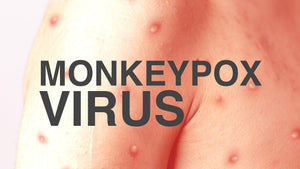
How Hypotension Impacts Your Life?
Think lifestyle diseases, and ailments like diabetes and hypertension are bound to come to the forefront. Fuelled by an unhealthy lifestyle and additional stress, these diseases don’t take much time to take a toll on a person’s body. However, there are many other conditions that sneak up without a warning, and one such phenomenon is hypotension. The prolonged condition of low blood pressure is seriously considered only when the symptoms are noticeable. One should know that a systolic blood pressure lesser than 90 mm-Hg or diastolic of less than 60 mm Hg is understood to be hypotension. Even though hypotension is considered more to be a physiological state than an ailment, one should be in the know about the phenomenon that could drastically affect your daily activeness. Just like how you buy diapers for adults online when you’re tackling incontinence, you can also explore our range of BP monitors and choose one that best suit your needs. However, you should know a little more about hypotension to control it more effectively.
What causes hypotension?
Many studies and results in the past have pointed out hypotension to be a symptom of many underlying issues with the body, especially when the elderly are concerned. Primary reasons for a dip in blood pressures include:- Reduced blood volume: The condition known as hypovolemia is often accounted for as the most common reason for hypertension. Issues like hemorrhage, insufficient fluid intake, and ineffective retention of electrolytes could all lead to reduced blood volume coursing through the blood vessels.
- Side-effects of medication: Continued use of medicines such as alpha-blockers, beta-blockers can have an impact on the heart rate, eventually slowing it down and reducing the heart’s ability to pump blood. Certain herbal medications may also present low blood pressure as a side effect.
- Existing heart conditions: Heart conditions such as heart attacks, heart valve problems, bradycardia have all seen the blood pressure dip to the lower end, in lieu of weaker heart muscles not being able to pump out blood effectively. For such cases, attractive prices of ECG machines today and the portable nature of such machines have simplified diagnosing and managing hypotension.
How to Treat hypotension
The most common among the symptoms include extreme fatigue, nausea, loss of consciousness, and light-headedness. This can drastically impact your day-to-day activities, inducing lethargy, and a general unwillingness to take up any activity. Thankfully, hypotension is easier to recover from. Chronic low blood pressure can be treated with adequate lifestyle and diet changes, however, one can look at the recommended measures below; these are simple and easy to implement:- Increase salt intake in the diet.
- Increase regular fluid intake (non-alcoholic) especially during summers
- Indulge in regular exercise to boost your blood flow. Avoid lifting weights till blood pressure returns to normal.
- Avoid standing for long.
- Avoid sudden movement in the body, especially when standing up after being seated for long.
- Eat more frequently, albeit smaller portions.
- You may also use compression stalks on the lower half of your body to restrict the blood to the upper section of the body.







